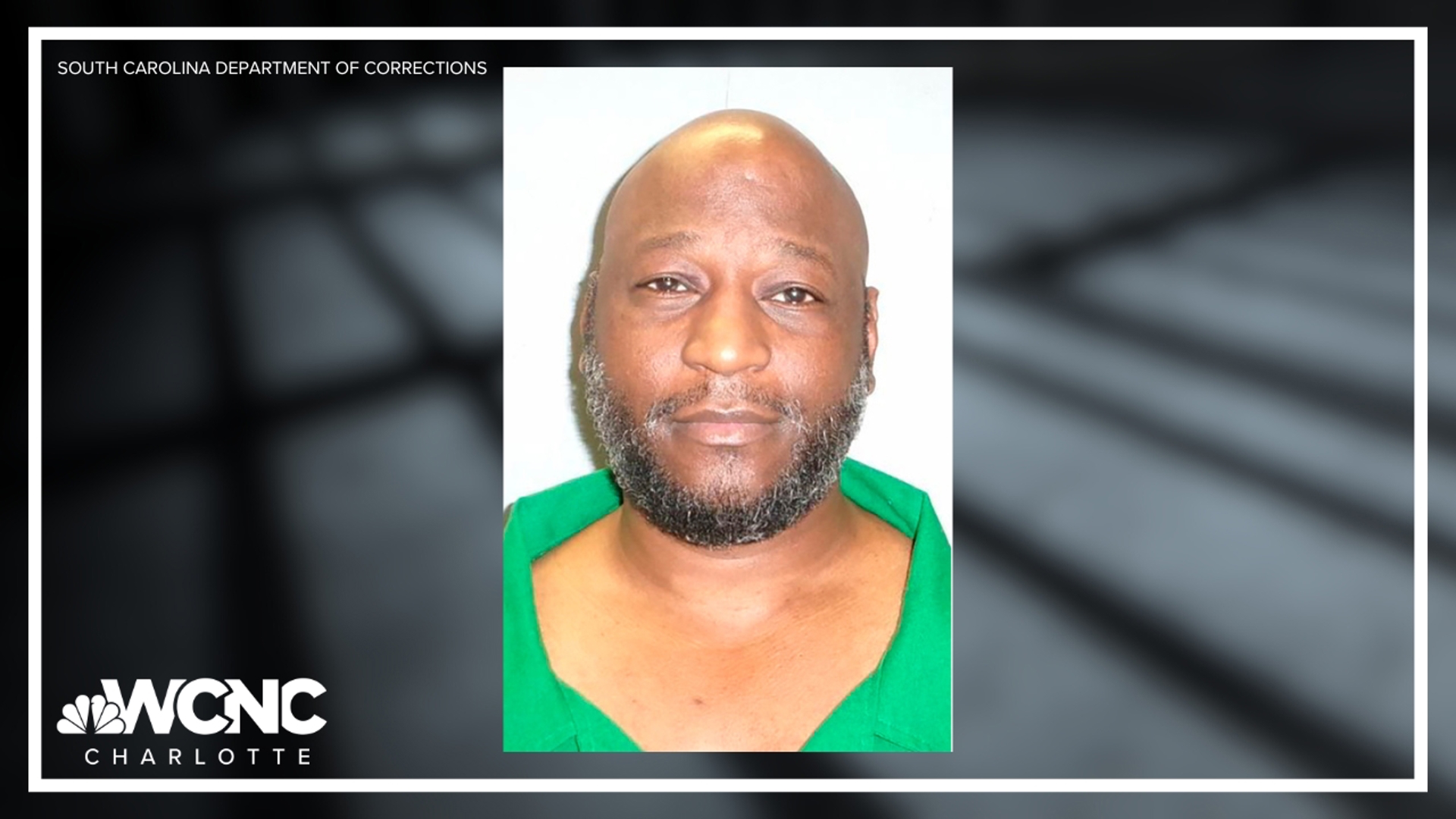COLUMBIA, S.C. — Condemned inmate Freddie Owens is turning to U.S. Fourth Circuit Court of Appeals after the South Carolina Supreme Court Thursday denied his latest attempt to prevent his execution that's set for Friday. It's unclear if they'll rule on the motion.
The court issued its decision late Thursday afternoon, stating they found no reason to reconsider their earlier decision to deny a stay. Owens, 46, is set to be put to death for the November 1, 1997 killing of Irene Graves during a robbery at a convenience store in Greenville County.
Attorneys for Owens had filed an emergency motion with South Carolina's high court to reconsider stopping his death based on an affidavit filed by Owens' co-defendant, Steven Golden, stating that Owens did not shoot Graves during the robbery at the Speedway convenience store.
“Freddie was not present when I robbed the Speedway that day,” Golden's statement said.
As for the timing of the affidavit, Golden said, “I'm coming forward now because I know Freddie's execution date is September 20, and I don't want Freddie to be executed for something he didn't do….I want to have a clear conscience.”
Owens' lawyers argued that Golden's affidavit amounted to new evidence in Owens' case and "meets this Court’s standard for a new trial based on actual innocence" and that "Golden’s statement also has direct and perhaps dispositive relevance for the claims of constitutional error that Mr. Owens has presented to this Court, and which this Court denied in its September 12 order."
However, in denying the motion, the court pointed out that the affidavit contradicts with Golden's testimony in Owens' 1999 trial, a resentencing hearing in 2003, and the statement he gave officers back in 1997 after the crime. They said his argument citing another case where there was last minute evidence that came to light wasn't relevant, since the other case was about a person who was confessing to the crime.
The Supreme Court of South Carolina denied an earlier request for a stay on Sept. 12 because the justices determined the evidence presented at that time did not reach the "exceptional circumstances" that would allow another appeal.
Golden had previously testified in court that Owens shot Graves in the head because she could not get the store safe open. Store surveillance did not provide a clear picture of the shooting, prosecutors never found the weapon, and they didn't present any scientific evidence linking Owens to the killing at his trial.
Golden was sentenced to 28 years after pleading guilty to voluntary manslaughter, and Owens was found guilty of murder and sentenced to death.
On Sept. 6, 2024, Owens had his lawyers choose lethal injection as the manner of his death rather than the electric chair or firing squad.
On Sept. 18, Owens asked South Carolina Governor Henry McMaster for clemency. McMaster has said he will stick to the historic practice of announcing his decision on the phone with the prison minutes before Owens' lethal injection is set to start.
Should the execution take place it would be the first in the state in 13 years.
It was controversy over lethal injection and the drugs used, that led to the pause in executions after Jeffrey Motts was put to death in 2011.
Like all drugs, those used for lethal injections have a shelf life. After the Motts execution, South Carolina's supply of the drugs had expired. To complicate matters further, suppliers of the drugs refused to sell them to various states, including South Carolina, for fear their companies would be sued.
This led to a years-long pause in executions, as the state grappled with how the death penalty would be carried out. Negotiations with lawmakers ultimately saw death by firing squad added to the list of options from which the condemned may choose.
The state also eventually passed a shield law that hides the identities of drug companies and the personnel involved in executions from the public.
Death penalty opponents have called on the governor to commute Owens' sentence to life in prison.
Jace Woodrum, Executive Director of the South Carolina ACLU said his group opposes the death penalty, no matter the method of execution, and points to the costs of those cases.
"Death penalty cases cost almost 10 times more than non-death penalty cases. The state is paying more. It's a bad and wasteful use of our resources," Woodrum said.
Reverend Hillary Taylor with South Carolinians Against the Death Penalty said the death penalty provides punishment to the convicted but not accountability to the victims.
"All victims of violence deserve to be heard; they deserve to have their pain taken seriously and they deserve to know that what happened to them will never happen again. And the death penalty cannot guarantee those things," Taylor said.
On the eve of Owens' execution, the daughter of his victim is speaking out. Ensley Graves-Lee was ten years old when her mother was killed. She said this moment had been a long time coming for her and her family.
"I don't know if it's closure, but we would like to bring a close to a chapter that has been open for the last 27 years. I guess after this, I'm hoping to just kind of breathe a little bit," Graves-Lee said.
Graves-Lee said the entire ordeal, especially this week, has taken a heavy toll on her and her family.

